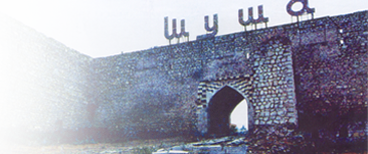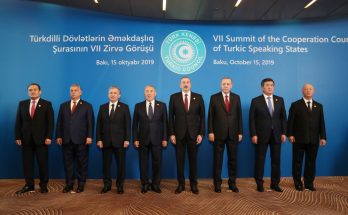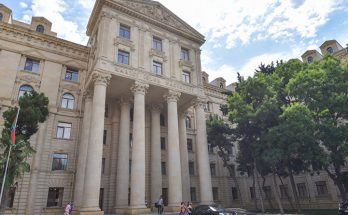
The Organization of Islamic Cooperation (OIC) again recognized the Khojaly tragedy as genocide, said the message from the International Secretariat of Islamic Conference Youth Forum for Dialogue and Cooperation May 29.
During the 42nd session of the OIC Council of Foreign Ministers in Kuwait May 27-28, a delegation led by the head of the Youth Forum for Dialogue and Cooperation Elshad Isgandarov put forward a special resolution.
In the resolution “On the Islamic Conference Youth Forum for Dialogue and Cooperation” adopted unanimously by the OIC Council of Foreign Ministers, Khojaly tragedy is called as genocide and the OIC member states are urged to make the necessary contribution for recognition of this crime against humanity at the international and national level.
At the same time, the resolution said that the massacre committed by Armenian armed forces in Azerbaijan’s Khojaly city in February 1992 is a crime against humanity and urged OIC member states and its structures to more actively participate in the “Justice for Khojaly” campaign and bring those responsible for this tragedy to justice.
Moreover, foreign ministers of OIC member states approved a memorandum on cooperation signed between the Islamic Conference Youth Forum for Dialogue and Cooperation and OIC Parliamentary Union in January 2015. They emphasized the necessity of rendering full support to the cooperation of the two organizations within the “Justice for Khojaly” campaign.
The conflict between the two South Caucasus countries began in 1988 when Armenia made territorial claims against Azerbaijan. As a result of the ensuing war, in 1992 Armenian armed forces occupied 20 percent of Azerbaijan, including the Nagorno-Karabakh region and seven surrounding districts.
On February 25-26, 1992, the Armenian armed forces, together with the 366th infantry regiment of Soviet troops stationed in Khankendi committed an act of genocide against the population of the Azerbaijani town of Khojaly.
As a result of the massacre, some 613 people were killed, including 63 children, 106 women and 70 old people. Eight families were totally exterminated, 130 children lost one parent and 25 children lost both. A total of 487 civilians became disabled as a result of the onslaught. Some 1,275 innocent residents were taken hostage, while the fate of 150 people remains unknown.
The two countries signed a ceasefire agreement in 1994. The co-chairs of the OSCE Minsk Group, Russia, France and the US are currently holding peace negotiations. Armenia has not yet implemented the UN Security Council’s four resolutions on the liberation of the Nagorno-Karabakh and the surrounding regions.
/Trend/




